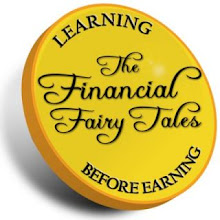The current financial crisis has sharpened the focus on the need for better financial education across all segments of the population. Just as information and guidance on healthy eating and exercise can prevent a lifetime of obesity, effective financial education, when started at an early age, can prevent chronic financial health problems later in life.
Where this education should take place is a matter of debate. Whether education and guidance of this sort would be more effectively shared by parents and families or taught formally as part of the school curriculum. Here we discuss some of the issues on both sides.
SchoolsFinancial literacy is an important element of preparing young people for adult life, which in turn is one of the main purposes of the education system. Lessons in money and financial matters can be integrated into many other existing subjects, such as mathematics, citizenship, PSHE and with some imagination into art, design and manufacturing based subjects.
Teachers have the skills of explanation, motivation and effective delivery. They also have access to resources, books and technology. Banks and other financial providers have programmes available to support teachers and schools.
Teaching financial literacy in schools guarantees a uniform, minimum of knowledge. Admittedly the quality and effectiveness may vary from school to school, region to region, yet a basic level of delivery can be assured.
Children are in a learning environment at school and therefore may be more receptive. Some parents may lack the necessary time, expertise or interest to teach their children about money. This may perpetuate a downward spiral, where a lack of awareness is passed from generation to generation.
ParentsAt present few teachers have the necessary experience or knowledge to competently teach financial education. Consequently they may possibly pass on their own beliefs or bad habits concerning their own finances. The training and resourcing required to up skill teachers will take time and money.
School curricula are already crowded with mandatory content. New criteria can only be added at the expense of something else.
Regardless of where you are reading this, is the state in the best position to impose a financial education curriculum? Is the example of huge debt and continually spending more than your income a great example to follow? So too, many of the banks whose financial attitudes have heightened the current economic problems.
The financial world exists outside of the classroom and many would argue that so too lie the better opportunities for learning. Examples include taking children shopping, encouraging them to save and take part time jobs. Showing by example how to budget, pay bills and make financial decisions are far more real when experienced in context.
We should also consider the differing religious and moral beliefs of parents and communities. For some, the principle of tithing or giving 10% to church or charity is fundamental and may conflict with a school curriculum. Other families and traditions have very strong views on debt or use cooperative systems for providing within communities.
These are some of the main arguments in the financial education debate. A definite solution is not immediately clear, however what is evident is the need for some kind of change. Parents and in fact young people themselves can access a range of financial information from a whole host of providers. They need not wait for others to take the lead. Schools on the other hand should be encouraged to provide at least a minimum explanation of key information as a safety net for those unable to access the information for themselves.
Labels: financial education, financial literacy, teaching children about money



